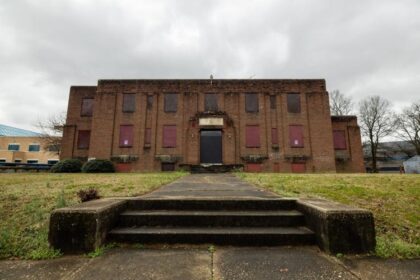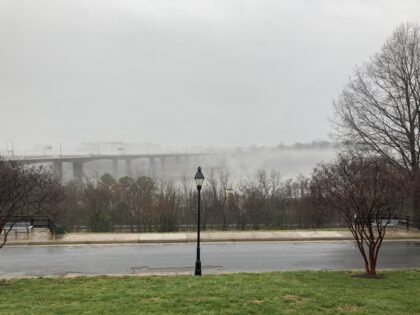
Richmonders have become somewhat used to Oregon Hill residents protesting the VCU administration’s encroachment and demolition of more of the historic Oregon Hill neighborhood.
With no ‘memorandum of understanding’ with the neighborhood from the VCU Board of Visitors, (despite many requests), the Wayne Commission plan never repudiated, the ‘Richmond300’ and re-zoning breathing down the neighborhood’s neck, and a future amphitheater designed to blast residents off the hill, Oregon Hill still faces a number of existential threats.
But that is not the focus of this editorial.
Virginia Union University, a small but noteworthy HBCU (Historic Black College and University), is emerging from a period of financial uncertainty and moving ahead with its own ‘master plan’ for growth. And while much of that is worth celebrating, one aspect that many Richmond residents are objecting to is the scheduled demolition of the old Community Hospital in Church Hill. This building, where so many people were born and cared for, has incredible resonance for the African American community.
Appropriately, local Black media and Black leaders like Viola Baskerville are rallying with VUU alumni to create a groundswell of support for renovating and repurposing the building, instead of bulldozing it.
From the Richmond Free Press:
Clearly, the structure is more than just a building. In the early 1900s, the hospital was founded in Jackson Ward by Dr. Sarah Garland Jones and other Black doctors who weren’t allowed to work at white hospitals in Richmond. For many years, Richmond Community Hospital was the epicenter of care for black people in the city, especially during segregation.
The hospital moved to Overbrook Road in the 1930s and to its current location in Church Hill in 1980. In 1995, the doctors, who owned the hospital as part of a for-profit partnership, sold it to Bon Secours, according to news reports.
Dr. Jones, it should be noted, was the first Black person and first woman to be certified to practice medicine by the Virginia State Board of Medicine.
VUU, so far, in response, is taking a page from the callous VCU administration in promising to ‘memorialize’ Community Hospital while moving forward with demolition.
As shortsighted as it is for this historic Black college and university to destroy this significant part of Richmond’s Black history, there are additional reasons to change course.
Historic preservation is inherently a sustainable practice. Study after study have proven that preservation and reuse of historic buildings reduces resource and material consumption, puts less waste in landfills, and consumes less energy than demolishing buildings and constructing new ones.
Historic buildings, often energy efficient from inherent characteristics, can be upgraded with new technologies to maximize energy performance. Historic features such as windows can be repaired and restored for higher efficiency. In addition to saving existing resources and historic character, historic preservation means environmental, cultural and economic benefits for communities, something that Oregon Hill residents have championed over time.
This is where the City’s Sustainability Department could and should take a stand, and prove it’s doing more than tiptoeing around developers and corporations’ profit making. And, as has been noted here repeatedly, City and State officials have a sworn duty to protect historic landmarks, though in recent years they have increasingly turned their back to it. This is a chance for them to make some amends.
This is a good time for Oregon Hill residents and ALL Richmond citizens to join together and recognize and support this cause.
This Sunday, The Gary Flowers Show, on 101.3 FM & 990 AM, will address the current discussion around the old Richmond Community Hospital building. There is also a rally scheduled for 1 pm outside the abandoned Community Hospital building at 1209 Overbook Road (see photo above). But what might make even more of a difference is if citizens make a point to contact the Virginia Union administration and board and The Steinbridge Group developers (at info@steinbridge.com).









